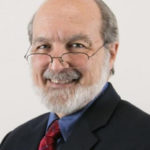USSAAC Leaders & Legends: Gregg Vanderheiden
Today, we honor Gregg Vanderheiden. As a graduate student, Gregg invented a speech-generating device. He played an important role in both the definition of the field of AAC and the formation of ISAAC. Gregg founded the TRACE center where he directed projects that were instrumental in accessibility features for the past 50 years.

